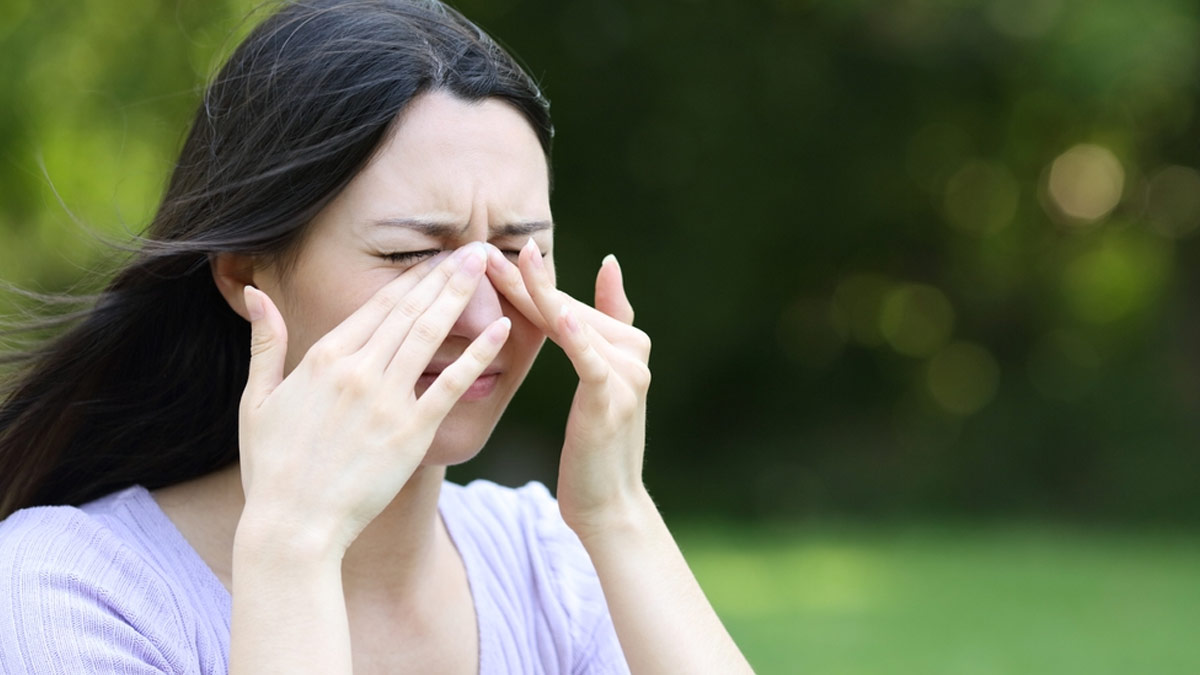
Rain showers can soothe our minds and bodies, but they also bring a mix of dust, bacteria, and chemicals from urban environments that can affect our eyes. Exposure to rainwater may lead to eye issues, such as bacterial or fungal conjunctivitis, dry eyes, styes, and corneal ulcers. To protect your eyes during the monsoon season, it’s essential to follow proper eye care practices. We consulted Dr Chetana T Nayak, Consultant Ophthalmologist, Gleneagles BGS Hospital, Bengaluru, who shares key eye care mistakes to avoid this rainy season to prevent eye infections.
Table of Content:-
Eye Care Mistakes To Avoid In Monsoon
Not Wearing Protective Eyewear

"When we go out in the rain, the polluted rainwater may enter our eyes and give rise to eye infection. Increased moisture content in the atmosphere also troubles our eyes. Protective eyewear can prevent debris from getting into the eyes during heavy rain and wind," said Dr Nayak. Therefore, it's important to wear protective eyewear during the monsoon. Also, ensure not to share it with anyone else.
Not Washing or Sanitising Hands Frequently
In the monsoon season, our hands come into contact with germs and bacteria that can lead to eye infections. To protect our eyes, we should always wash our hands thoroughly before touching our eyes or applying eye drops. This simple practice can help prevent many monsoon-related eye infections. If rainwater splashes into our eyes, we should gently rinse them with clean, drinkable water. If we experience eye redness or irritation, it's important to seek advice from an eye specialist immediately.
Also Read: Dancing Eye Syndrome: Expert Explains Causes, Symptoms, And Treatment For This Condition
Sharing Makeup, Brushes, Handkerchiefs and Eye Drops

Sharing personal hygiene products is always a bad idea, regardless of the season. This practice can easily spread bacteria and viruses from one person to another. Therefore, don’t share eyeliners, kajal or mascaras with anyone else, even with close relatives.
Eye makeup may sometimes get washed off into the eyes during the rainy season and may irritate the eyes. "Sometimes make-up products do not retain their quality in moisture and fungus may grow on them. Such products should be discarded, especially if you wear contact lenses. Also sharing eye drops may be detrimental as it can spread infection from one person to another," added Dr Nayak.
Not Removing Makeup Properly
Makeup has to be completely removed to prevent bacterial build-up. According to the American Academy of Ophthalmology (AAO), improper removal of eye makeup can lead to irritation. For instance, a 50-year-old woman who wore mascara overnight for over 25 years developed painful black lumps under her eyelids, resulting in follicular conjunctivitis.
Wearing Contact Lenses While Swimming or Bathing in Contaminated Water

Swimming pool water contains harmful chemicals, which can irritate eyes and cause discomfort, redness and blurry vision. It can also cause eye infections. Hence, always remember to remove contact lenses to ensure eye safety.
Also Read: Evaporative Dry Eye: Expert Explains Its Causes, Symptoms, And Treatment
Not Cleaning and Disinfecting Contact Lenses Regularly
Contact lenses have to be properly cleaned and disinfected regularly. It has to be replaced regularly, as advised. The Centers for Disease Control and Prevention (CDC) emphasises that lens care involves cleaning to remove deposits, debris, and some germs from the lens surface. Disinfection is essential for killing harmful germs that can lead to severe eye infections.
Rubbing Eyes Vigorously
Touching or rubbing your eyes with dirty hands is not recommended. Instead, gently pat your eyes. According to a 2023 study, eye rubbing is a common reaction to discomfort, fatigue, or itchiness and is a natural behaviour before or after sleep. However, vigorous or prolonged rubbing can be harmful, particularly to the cornea, which is directly affected due to its exposed position.
Self-Medicating
"In case of any eye problem during monsoon, self-medication should be completely avoided. No eye drops should be used without prior consultation with the ophthalmologist. Self-medication may worsen the situation leading to some more serious eye problems," said Dr Nayak.
[Disclaimer: This article contains information provided by an expert and is for informational purposes only. Hence, we advise you to consult your own professional if you are dealing with any health issues to avoid complications.]
Also watch this video
Read Next
Elon Musk Backs J.K. Rowling's Thoughts On Gender Dysphoria; Know The Symptoms Of The Condition
How we keep this article up to date:
We work with experts and keep a close eye on the latest in health and wellness. Whenever there is a new research or helpful information, we update our articles with accurate and useful advice.
Current Version